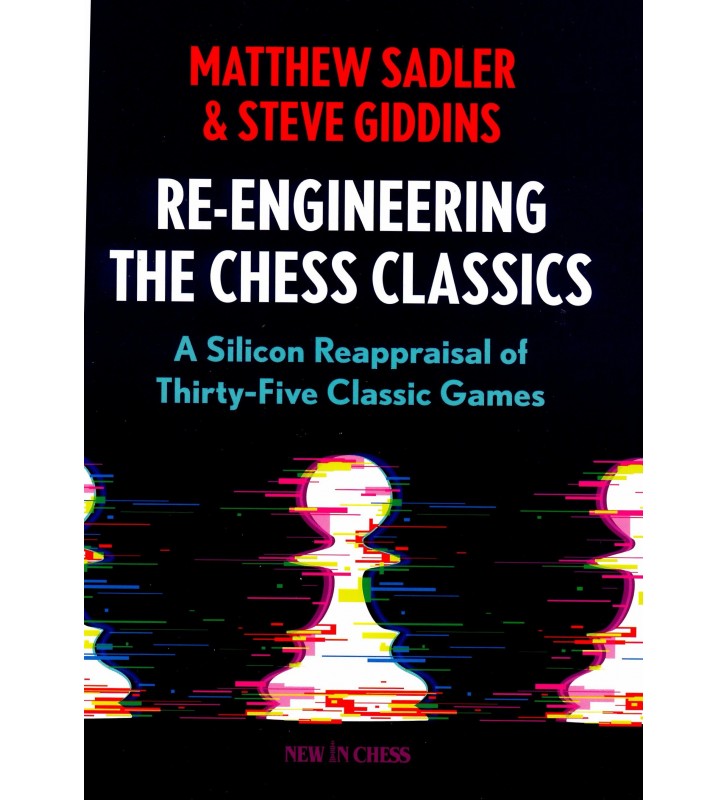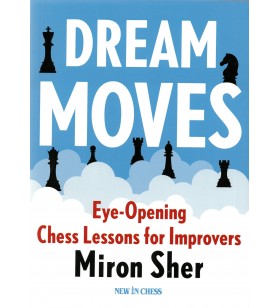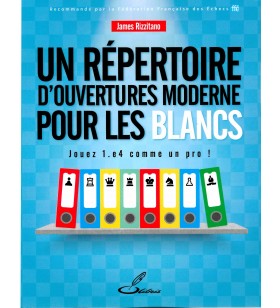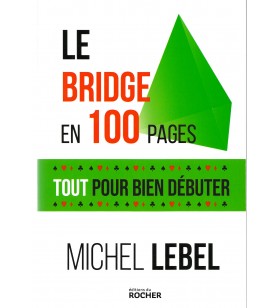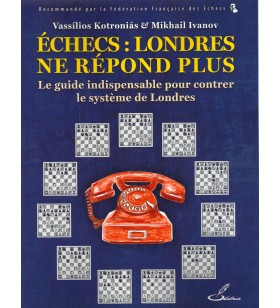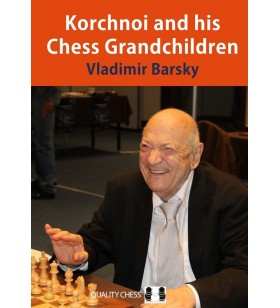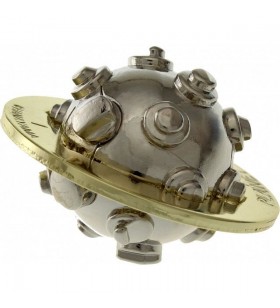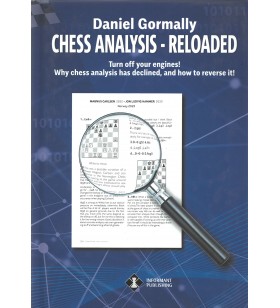Sher - Dream Moves (Eye-Opening Chess Lessons for Improvers)
Do you want to do the same chess homework that world-famous grandmasters Fabiano Caruana, Robert Hess and Peter Heine Nielsen did in their formative years as chess players? This book will test you with hundreds of positions created by their coach Miron Sher (1952-2020). Just like Fabiano, Robert and Peter, you are not supposed to stop after the first move. You have to find the last move of the solution!
Miron Sher is one of those legendary coaches who got their chess education in the Soviet Union and in later years spread their knowledge in Western Europe and the United States. He was born in Ukraine, studied in Moscow, coached the Russian national team and emigrated to New York in 1997. There he taught at various schools and worked privately with dozens of students.
Dream Moves focuses on five themes that Sher considered important for chess improvement.
- An unprotected piece – the trigger to start thinking tactics!
- In-between moves – they help you spring a surprise on your opponent
- Open files – a fundamental element of chess strategy
- The 20% Rule – if your pawn has advanced to the 5th or 6th rank, moving it forward is quite often your best option
- Dream Move – dream about the final, decisive move, and you will find the way there
The book contains close to one hundred illustrated games and more than three hundred puzzles. Do as the legends did - and use these puzzles to sharpen your tactical skills and improve your understanding of chess.
Miron Sher (1952-2020) is chess grandmaster and legendary coach. He was born in Ukraine, won a dozen international tournaments as a player, and became famous as a trainer in the United States where he lived since 1997. In New York he taught chess at multiple schools, including the Dalton School, IS 318 and Stuyvesant High School. He worked privately with dozens of students such as Fabiano Caruana, Robert Hess and Peter Heine Nielsen. 304 pages

 Français
Français Nederlands
Nederlands English
English